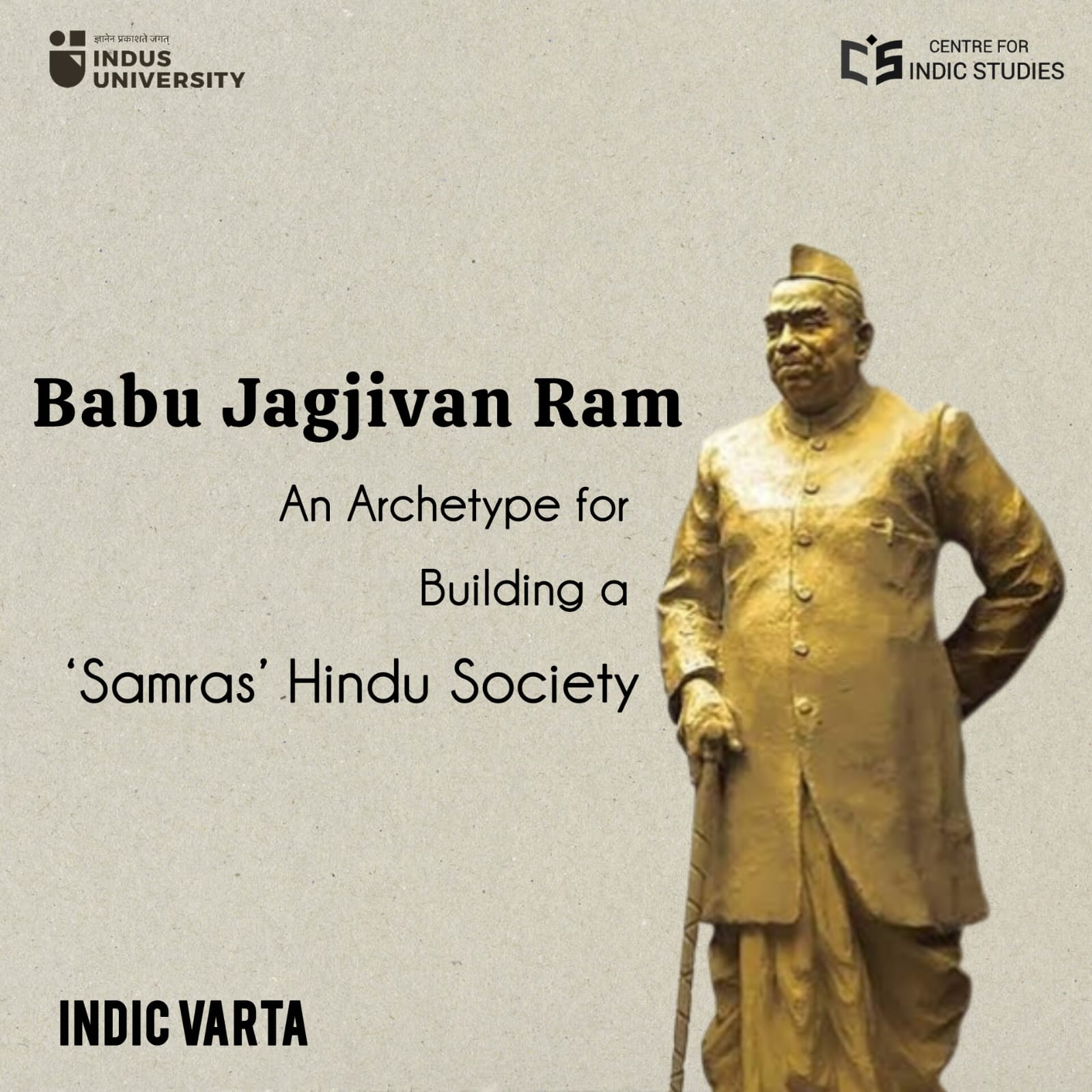- Visitor:16
- Published on:
Unity or Plurality: A Linguistic Perspective – 1
In this serious investigation into Word and Consciousness, Shri Gaurinath Shastri delves into grammar and logic to explore the phenomena of unity and plurality. In this piece, he tries to answer the question of what comes first, unity or plurality.

According to the grammarian-philosopher, the Ultimate Reality is word and Word is Consciousness. Consciousness minus Word is an absurdity. The identity of Consciousness and Word has been proved by weighty arguments which we have set forth in preceding chapters. Now consciousness is an indivisible and unanalyzable simple entity. It appears to be many owing to association with diverse contents. The contents are identified with consciousness and consequently they superpose their diversity upon the basic unity of consciousness which holds them together.
The unity of judgmental thought is an inalienable fact, and this has proved to be a crux to the believer in pluralism. Can the plurality be converted into a unity? The analytical tendency of empirical thought, which takes the surface appearance of thought-contents to be the ultimate data, seeks to deduce unity from plurality by a sort of chemical process which the Realist fails to explain. The believer in phenomenal pluralism has floundered on this problem. In his haste to find out a plausible and easy explanation he affirms the unity of thought with diverse contents as a postdated event which emerges in a miraculous fashion.
This attempt to distil unity from plurality shows slipshod thinking. Plurality is in the ultimate analysis nothing but a sum of unities. It is unity in the plural number. But the plural number is irreconcilably incompatible with unity. It is as false and meaningless as the plural number of 1. How can a unity be many? Even if it be taken for granted that there can be many units and the many units form the plurality, it cannot be overlooked that unity is the foundation and starting point of plurality.
Unity is antecedent to plurality. If we are confronted with this problem of incompatibility of unity with plurality and if we are constrained to discard one of the two incompatibles, we have to do away with plurality and accept unity as a matter of logical necessity. For plurality is inconceivable without unity as we have seen that plurality is nothing but unity in the plural number.
The grammarian posits word as consciousness. The two terms are, to all intents and purposes, synonymous. And consciousness is an indivisible entity. It is matter that is divisible, and it is the indivisibility of consciousness which distinguishes it as a spiritual fact from matter.
Now the proof of matter and of the plurality which infects it is furnished by our awareness of it. The Materialist who seeks to distil consciousness from matter simply puts the cart before the horse. How can we posit matter unless we are aware of it? So awareness is the fundamental datum and it would be suicidal to jettison it under a pluralistic bias.
Apart from the consideration whether matter and its consequential plurality have ultimate validity or not, a cool consideration of the logical implication of thought-activity is bound to drive home the conclusion that unity of consciousness is the presupposition of discursive thought.
It is the form which lends unity to the contents which are strung together upon it. This unity is an immediate, unanalyzable, unbroken and simple illumination which the grammarian designates as pratibha. It is this that makes discursive thought and pragmatic activity possible of realization.
The ultimate meaning of a verbal proposition is also affirmed to be an unbroken intuition which is called pratibha. We have seen at the outset that word is consciousness and consciousness is immediate, self-luminous and intuitional in its intrinsic nature. So word and intuition (pratibha) are one and the same thing. To affirm, therefore, that the meaning of a word or a proposition is intuition (pratibha) amounts to affirming the meaning of a word as word. This seems to be a case of hopeless tautology. A word and, for the matter of that, a proposition is felt to be denotative of a meaning, and this meaning is a fact which necessarily transcends the verbal form. To say that a word denotes itself is tantamount to the assertive that a word is an unmeaning piece of nonsense. Even if the equation of word with consciousness be accepted as a correct appraisal of reality and truth, the essential character of self-transcendence of verbal assertion and of the conceptual thought which is adumbrated by it cannot be brushed aside unless the objective reference, i.e., reference to some alien situation be deliberately ignored.
This objection is so obvious and based upon such plain common sense that it will be absurd to repudiate it. It would be idle to suppose that this simple fact did not occur to the grammarian. The grammarian does not deny that a verbal proposition has got a meaning, i.e., a reference to an objective fact which is different from it. Obviously the proposition is the form and the meaning is the matter, and the two are felt to be ontologically different entities.
So the attempt to refute the grammarian on the ground of his repudiation of the obvious understanding and psychological evidence simply amounts to an onslaught upon a castle built in the air. The opponent only demonstrates a fact which the grammarian never pretends to dispute. It is not denied that psychologically a word has an extra-subjective reference. But the problem is not so simple and plain as the opponent assumes it to be. Consciousness is supposed on the strength of empirical thought to be impossible without a foreign content. Our empirical thoughts are always thoughts about some object and the latter is an alien fact which somehow coalesces with them.
But as a philosopher who wants to understand the true character of things, the grammarian raises questions about the ontological nature and status of the content in relation to consciousness. This relation which seems to be so plain and patent a fact transpires on examination to be a pleasant makeshift and convenient device which does not admit of a logical explanation. How can a fact, by itself an unconscious and unthinking brute entity, be integrated with consciousness? Certainly, the relation is neither one of identity nor of difference because both the alternatives make relation impossible.
Besides, consciousness is an internal entity and a foreign material object is an external fact: the two are by their nature autonomous and independent of each other. There is a gulf between them and we cannot understand how it can be bridged. The Realist admits the autonomy of the two realms of existence and yet he assumes that somehow they are forced into a wedlock. Psychologically speaking he is perfectly justified in asserting the obviousness of the relation.
But when the logic of this felt integration is sought to be understood and the Realist is asked to throw light upon it, he simply rules out this honest query by denying the problem altogether. Certainly, the opponent’s assertion of the problem as the explanation of it is not a philosophically satisfactory procedure, though the sincerity of his belief may not be called in question.
- 8 min read
- 0
- 0










